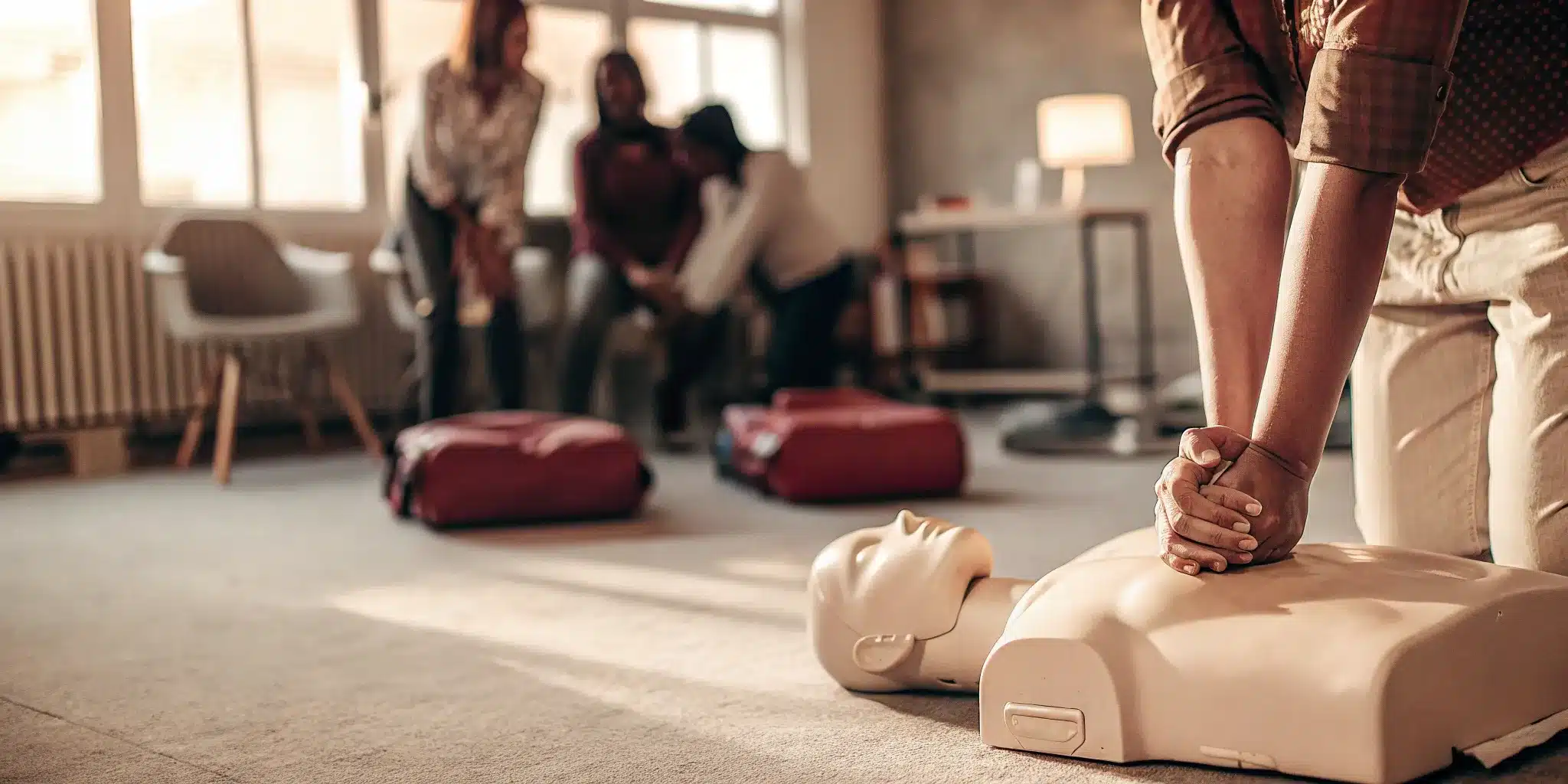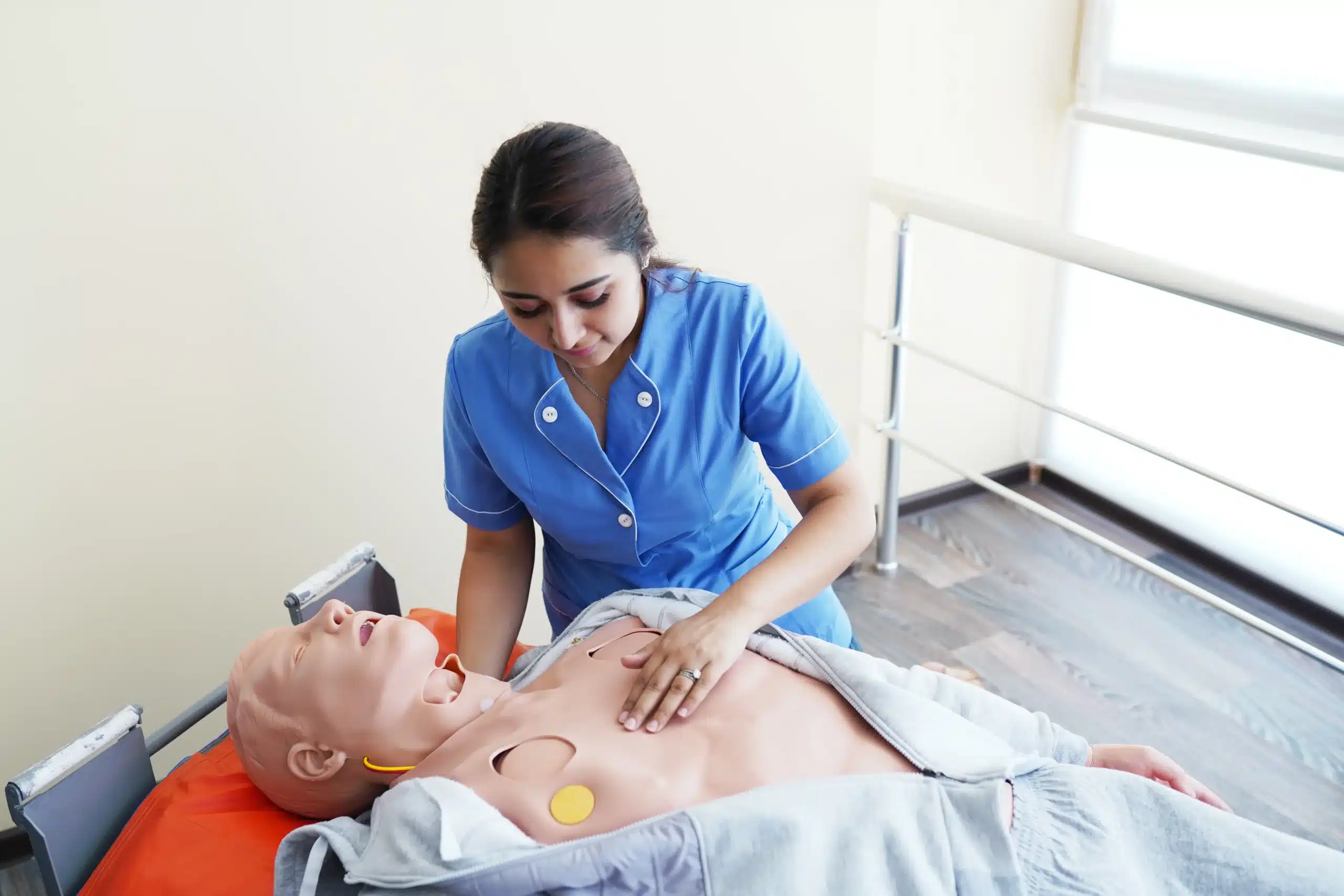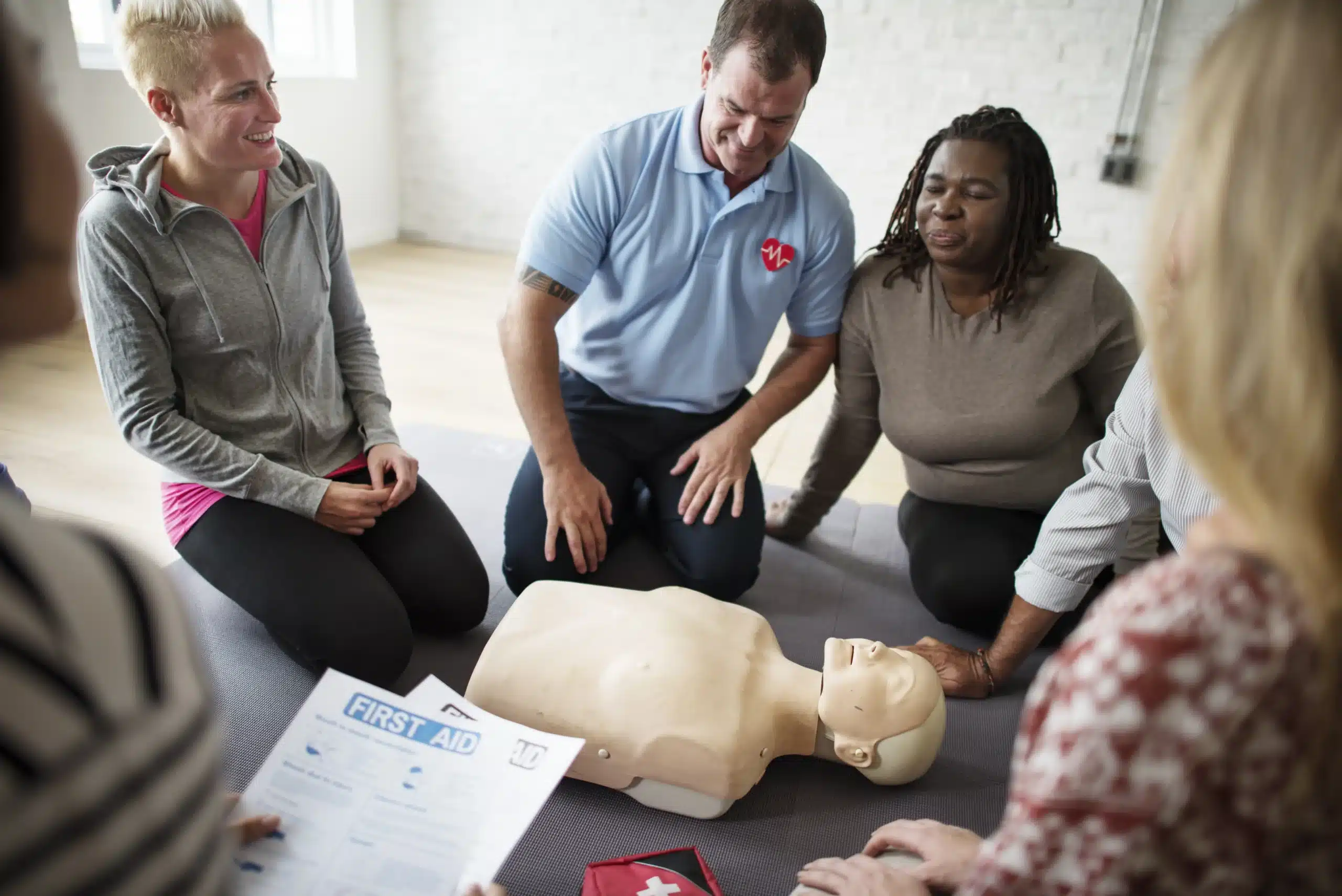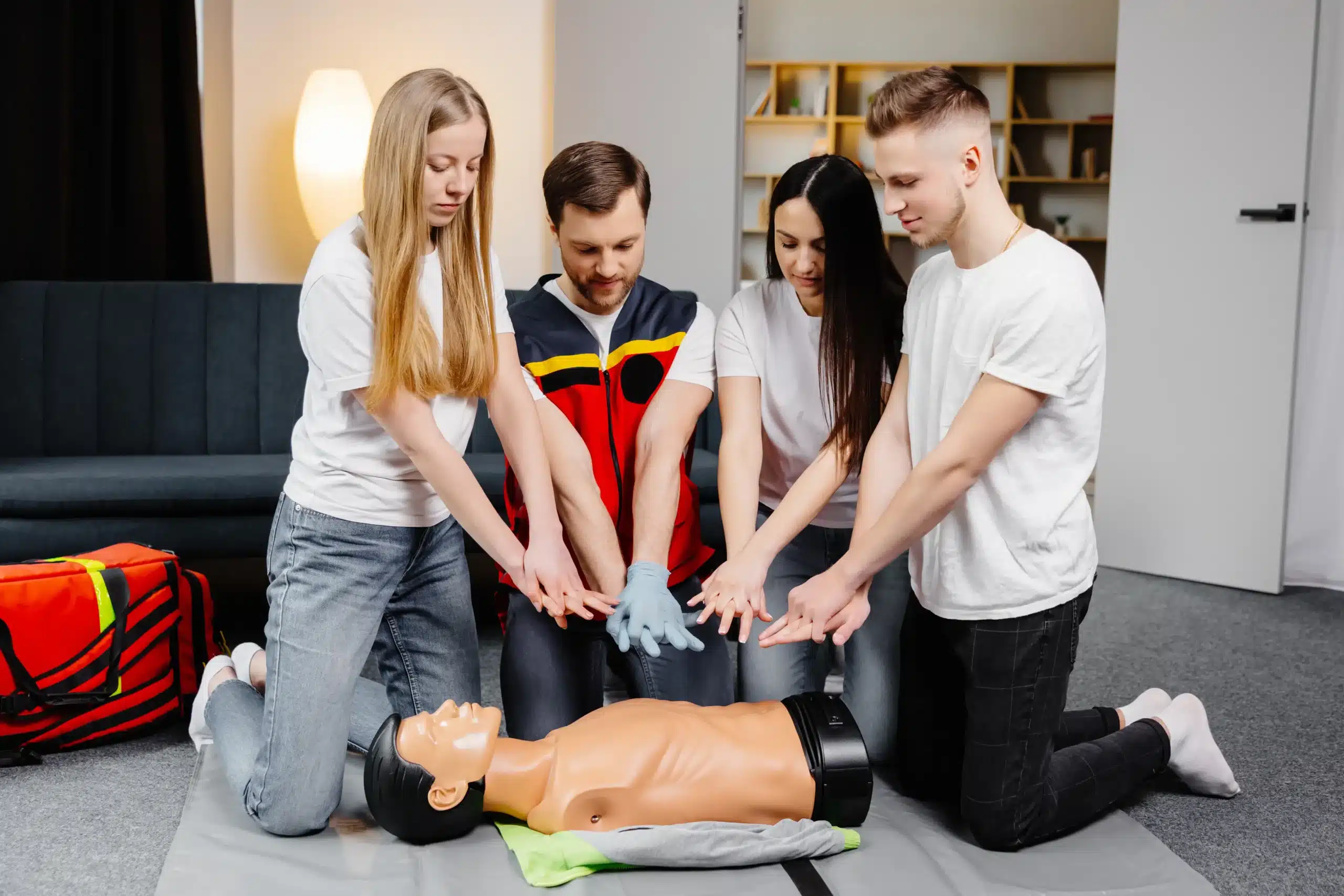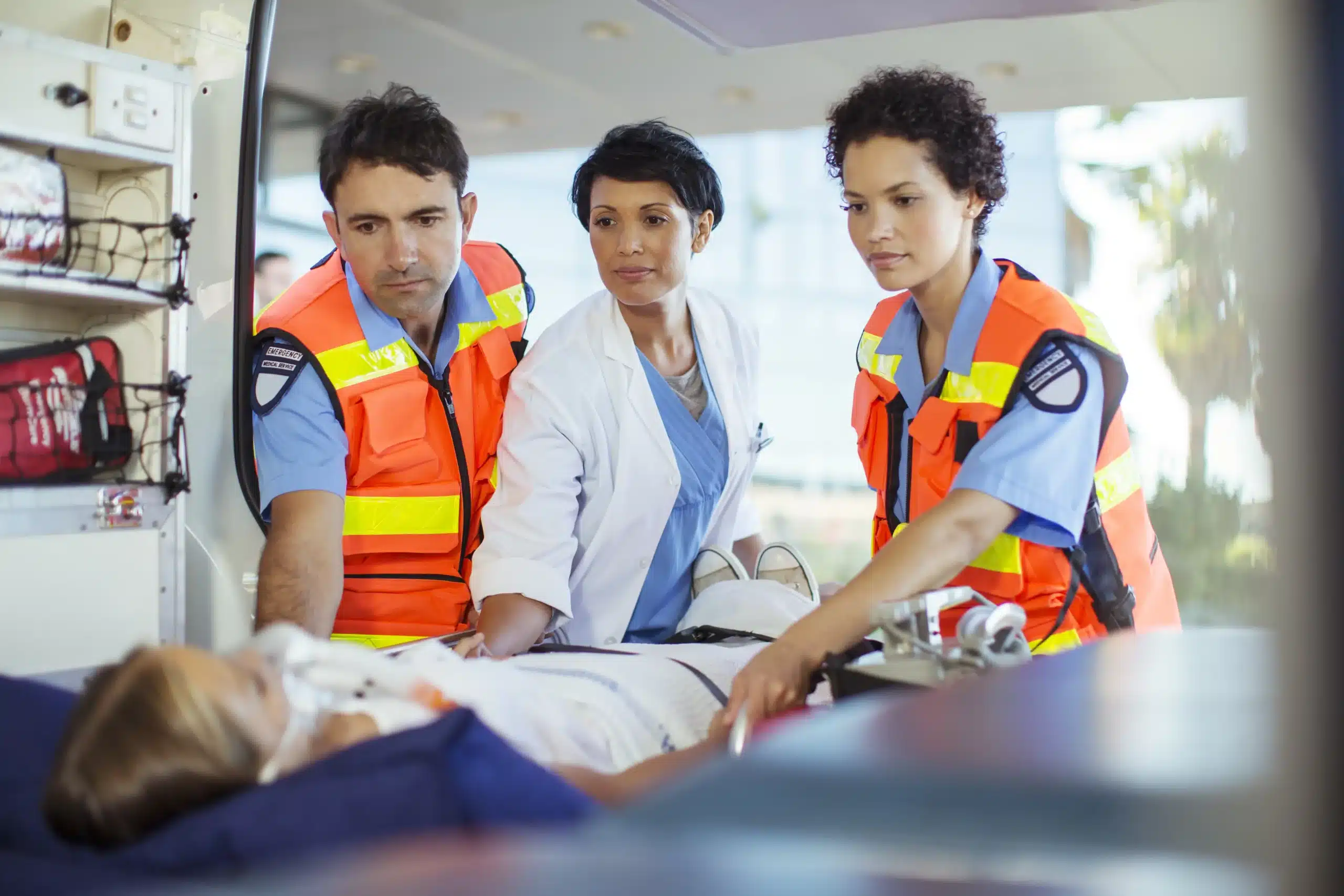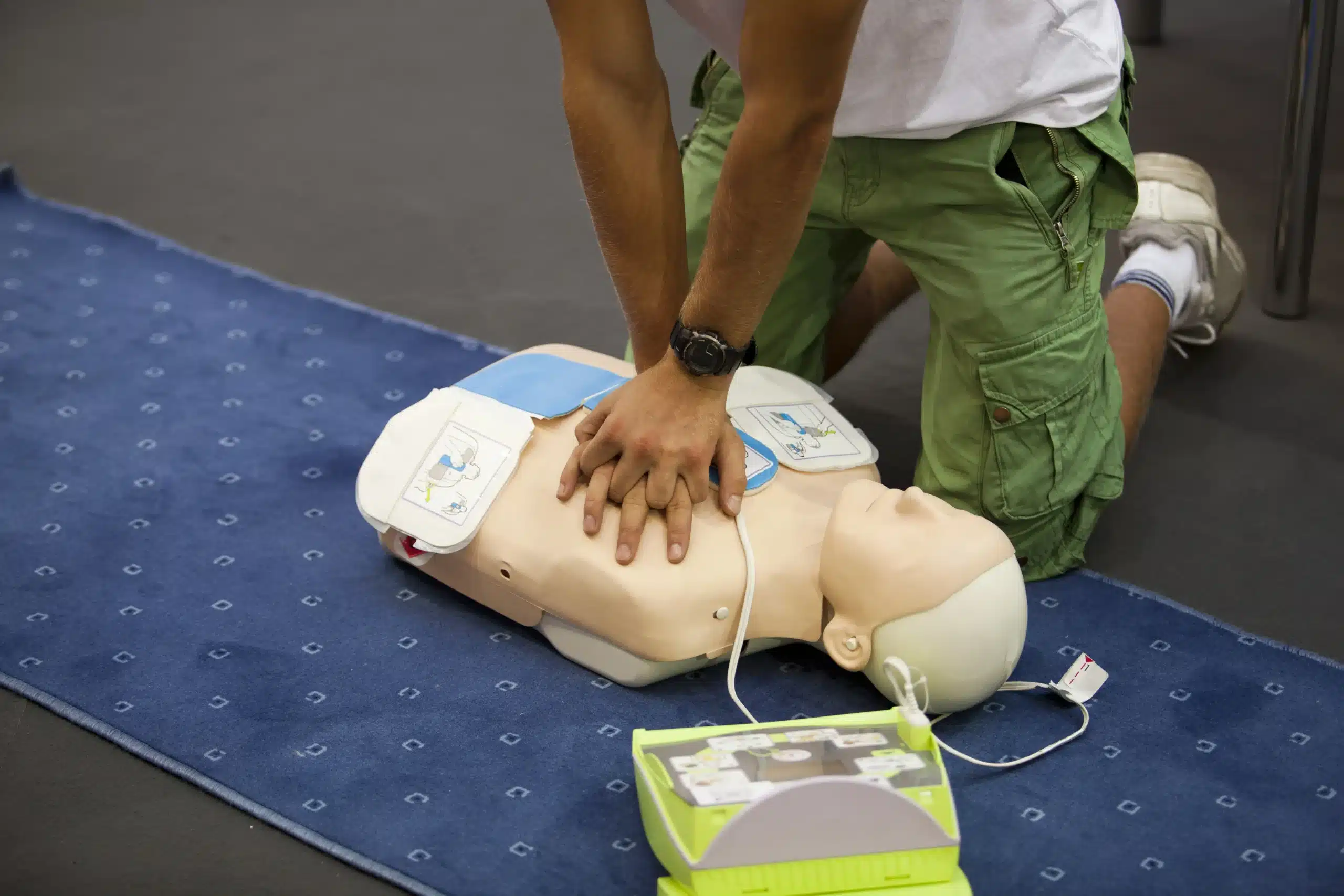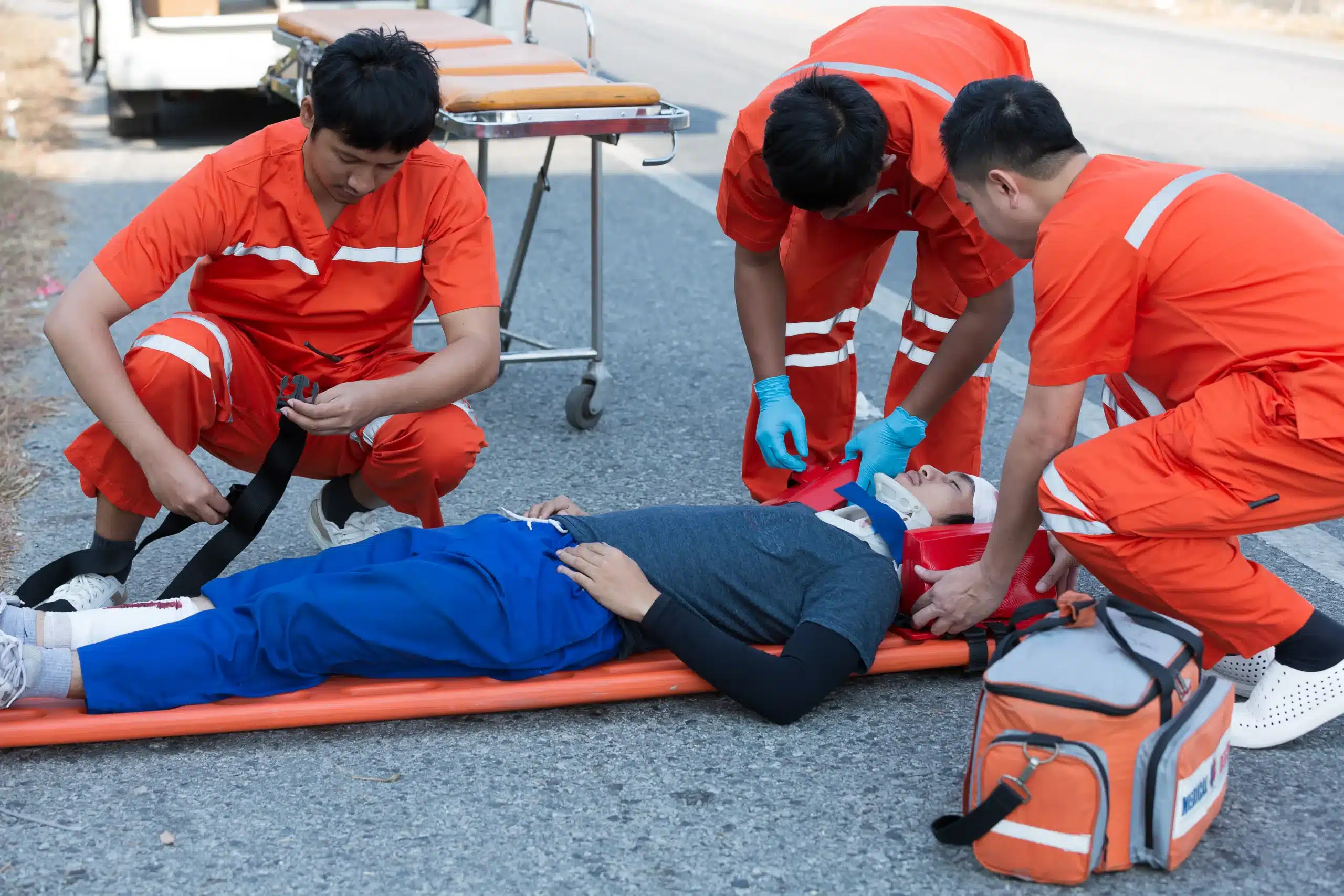Emergencies happen, and knowing how to respond can make all the difference. First aid certification Dublin CA empowers you to act quickly and confidently in critical situations. This comprehensive guide explores the world of first aid and CPR training in Dublin, CA. We’ll cover various certification levels, from basic first aid to advanced life support, and discuss the benefits of becoming certified. Whether you’re a healthcare professional, a childcare provider, or simply someone who wants to be prepared, this post will help you find the right first aid certification Dublin CA training program for your needs.
Key Takeaways
- First aid certification equips you for emergencies: Learn essential skills like treating injuries and performing CPR, boosting your confidence and promoting a safer environment. Explore various certification levels to find the best fit.
- Dublin CPR Classes offers convenient, comprehensive training: Located in Dublin, CA, they provide various courses, including CPR, first aid, BLS, ACLS, and PALS, with flexible scheduling and group discounts.
- Stay current with your certification: Regularly refresh your skills and recertify every two years to maintain your qualifications and confidently respond to emergencies. Continuing education opportunities can help you stay up-to-date with the latest protocols.
What is First Aid Certification in Dublin, CA?
First Aid Certification in Dublin, CA, equips you with the skills to handle medical emergencies. It covers essential techniques like treating minor injuries, controlling bleeding, and managing burns. You’ll also learn CPR and how to use an AED. These skills can make a real difference in critical situations, helping stabilize someone until professional help arrives. For example, if you work in childcare, you might consider the EMSA Child Care Health & Safety training offered by Dublin CPR Classes. Certification programs are designed to meet various needs, whether for personal preparedness, workplace requirements, or community involvement. Earning your certification not only builds your confidence but also contributes to a safer environment for everyone. Dublin CPR Classes offers a range of courses, including American Heart Association BLS certification, to help you gain these vital skills.
Available First Aid Certification Courses
Knowing your options is the first step. This section breaks down the different types of first aid certifications available in Dublin, CA, to help you choose the best fit.
CPR Certification
CPR certification teaches you how to respond to cardiac and breathing emergencies. You’ll learn chest compressions, rescue breaths, and how to use an AED (Automated External Defibrillator). The American Red Cross offers various CPR and AED classes in Dublin, including in-person, online, and blended learning formats. In-person CPR training offers hands-on practice and a two-year certification, meeting workplace safety standards.
Basic Life Support (BLS)
BLS certification goes a step further than standard CPR. It’s designed for healthcare providers and other professionals needing a comprehensive understanding of life-saving techniques. BLS Certification covers CPR, AED use, and other essential skills for managing respiratory and cardiac arrest. Dublin CPR Classes offers American Heart Association-certified BLS training, including the RQI (Resuscitation Quality Improvement) program. The RQI program provides a convenient, efficient path for medical professionals to obtain their BLS certification cards.
Advanced Cardiovascular Life Support (ACLS)
For healthcare professionals who lead or participate in emergency cardiovascular care, ACLS certification is essential. ACLS courses cover advanced interventions, including medication administration and team-based resuscitation strategies. This certification focuses on complex situations like cardiopulmonary arrest and other cardiovascular emergencies.
Pediatric Advanced Life Support (PALS)
PALS certification equips healthcare providers with the specialized knowledge and skills needed to respond to emergencies involving infants and children. PALS training emphasizes the assessment and treatment of pediatric respiratory and cardiac emergencies, highlighting the importance of teamwork and clear communication during critical situations.
Where to Get Certified in Dublin
Finding the right CPR and first aid certification course in Dublin, CA, depends on your specific needs and preferences. Here are a few reputable options to explore:
Dublin CPR Classes
Dublin CPR Classes offers American Heart Association-certified training in CPR, First Aid, and AED. They also cover advanced courses like ACLS, PALS, and NRP. Their focus on hands-on learning ensures you gain practical experience. Their 4.8-star rating reflects their commitment to quality instruction. Check out their BLS certification course for healthcare providers. They also offer group discounts, making them a cost-effective choice for organizations. For other training locations, their Northern California CPR directory is a helpful resource. Dublin CPR Classes also utilizes the American Heart Association’s RQI program for convenient online recertification. They even have a low-price guarantee.
American Red Cross
The American Red Cross is another excellent option for CPR and AED classes in Dublin. They offer flexible learning formats, including in-person, online, and blended learning. Their in-person classes provide hands-on training and a two-year certification that meets OSHA workplace safety standards.
Safety Training Seminars
Safety Training Seminars provides a comprehensive range of certification courses, including CPR, BLS, ACLS, PALS, and First Aid in Dublin. As an American Heart Association (AHA) Training Center, they offer classes daily, including weekends. Students receive official AHA certification cards valid for two years upon completing their course.
Local Hospitals and Medical Centers
Consider checking with local hospitals and medical centers. Many offer first aid and CPR training through community outreach programs. These courses are often led by experienced medical professionals and provide certifications recognized by various health organizations. Contact your local hospitals directly to learn more about their course offerings.
How to Get Certified
Getting your first aid certification is straightforward. This section walks you through the process, from prerequisites to renewal.
Course Prerequisites
First aid and CPR certification classes in Dublin, California, typically have minimal prerequisites. You generally just need to be physically able to perform CPR. For specific requirements, check with your chosen training provider, like Dublin CPR Classes.
Training Duration and Formats
You have several training options. In-person classes provide hands-on learning and a two-year certification meeting Occupational Safety and Health Administration (OSHA) workplace standards. Online courses offer flexibility, but they don’t usually provide the same certification for workplace settings. Blended learning, a mix of online and in-person training, offers another path. Dublin CPR Classes offers various course formats.
Certification Exam
After training, you’ll take a certification exam to demonstrate your skills. Upon passing, you’ll receive an official American Heart Association (AHA) certification card, valid for two years.
Renewal Requirements
Your first aid and CPR certification lasts two years. To maintain your credentials, recertify before it expires. Check with your certifying organization or Dublin CPR Classes for recertification options. Staying current with protocols ensures you’re always prepared to help in an emergency.
Benefits of Certification
Getting your first aid certification offers several advantages, from personal growth to career opportunities. Let’s explore some key benefits:
Personal Safety and Confidence
First aid certification equips you with the skills to respond effectively during emergencies. Knowing how to handle situations like choking, bleeding, or sudden illness brings a sense of confidence and control. These first aid skills translate to increased safety not just for yourself, but also for your family, friends, and community. You become a valuable resource in unexpected situations.
Professional Advancement
In many professions, a current first aid certificate is a requirement or a significant advantage. Healthcare providers, educators, childcare professionals, and those in security or public safety roles often need this credential. Even where it’s not mandatory, this certification demonstrates your commitment to safety and can enhance your resume, potentially leading to new opportunities.
Workplace Compliance
Many workplaces require a certain number of employees to be certified in first aid and CPR to comply with safety regulations. By becoming certified, you help your workplace meet these requirements and contribute to a safer work environment. This is particularly important in settings like schools, daycare centers, and manufacturing facilities. The American Red Cross offers courses to maintain your certification, ensuring workplaces stay compliant.
Community Preparedness
First aid and CPR skills are invaluable community assets. By getting certified, you become a link in the chain of emergency response, providing immediate assistance before professional help arrives. This can significantly improve outcomes in critical situations. These skills make a real difference in emergencies. A more prepared community benefits everyone, creating a safer environment.
Costs and Value
Getting first aid certified is an investment in yourself and your community. Understanding associated costs helps you make informed decisions. Let’s break down typical pricing structures.
Individual Course Pricing
Individual course prices vary depending on the certification type and the training provider. For example, a standard adult CPR and AED course in Dublin can cost around €150 at some training centers, like the Dublin Training Academy. Always check with your chosen provider for their most up-to-date pricing. Dublin CPR Classes offers a low price guarantee for competitive course pricing.
Group Rates and Discounts
If you’re training with a group, explore group discounts. Many providers, including Dublin CPR Classes, offer reduced rates, making it cost-effective for workplaces, community organizations, or friend groups. Learn more about Dublin CPR Classes group discounts. They also have student discounts on courses like the American Heart Association BLS CPR training.
Online vs. In-Person Training Costs
You’ll find both online and in-person first aid training. Online courses often have lower prices, offering a convenient way to learn the basics. However, in-person training provides hands-on practice and instructor interaction, invaluable for building confidence and mastering skills. Both online and in-person CPR and first-aid classes are available in Dublin, California, catering to different learning preferences and budgets. Consider which format best suits your learning style and needs.
Current Promotions and Offers
Keep an eye out for special promotions and limited-time offers. Training providers sometimes offer incentives like free materials, discounted rates for combined courses, or package deals. Check with individual providers for current deals. You can also explore the Northern CA CPR Directory for a broader view of courses and potential promotions. For a blended learning experience, consider Dublin CPR Classes’ RQI program for a flexible certification option.
Choose the Right Course
Finding the right first aid and CPR course requires a little research. Think about your specific needs, compare different course options, and consider the instructors and schedule. Taking these steps will ensure you find the perfect fit.
Assess Your Needs
Before you jump into a course, ask yourself why you’re getting certified. Are you looking for personal knowledge, do you need it for your job, or are you pursuing a career in healthcare? CPR and first-aid certification are essential for anyone who wants to be prepared for emergencies. If you’re unsure which course aligns with your goals, check out our guide to CPR and first-aid certification for more information. Knowing your “why” will help you choose the right course level.
Compare Course Curricula
Different courses cover different material. A basic first aid course will cover common injuries like cuts and burns, while a more advanced course might include wilderness first aid or advanced life support techniques. The American Heart Association RQI program offers a streamlined approach to BLS, ACLS, and PALS certifications, a popular choice for healthcare professionals. Review the curriculum to ensure it meets your specific requirements.
Evaluate Instructor Qualifications
Learning from experienced and qualified instructors is key to a good learning experience. Look for courses taught by certified instructors with a strong background in first aid and CPR. Safety Training Seminars, a woman-owned AHA Training Center, offers high-quality instruction for various certification levels. Don’t hesitate to ask about an instructor’s experience and credentials before signing up.
Consider Schedule Flexibility
Life gets busy, so finding a course that fits your schedule is important. Look for classes offered on weekends, evenings, or even online. Dublin CPR Classes offers flexible scheduling options, with courses available every day of the week to accommodate busy lifestyles. Think about your availability and choose a course format and schedule that works for you.
Maintain Your Certification
Keeping your first aid certification current is essential for providing effective care when needed. Knowing recertification timelines and staying informed about the latest protocols ensures your skills remain sharp and you’re prepared for emergencies.
Recertification Timelines
First aid certifications, whether from in-person or blended learning CPR classes, are typically valid for two years. Mark your calendar and plan to renew your certification before it lapses to avoid any gaps in your qualification. This proactive approach ensures you’re always ready to respond.
Continuing Education Options
Several continuing education paths can help you maintain your certifications. For BLS, ACLS, and PALS certifications, the RQI program offered by Dublin CPR Classes is a convenient option. This program combines online learning with a skills test and provides same-day card issuance, fitting easily into busy schedules.
Stay Updated with Latest Protocols
Staying current with evolving first aid protocols is crucial for effective emergency response. Studies show that skills can deteriorate within months of initial training, highlighting the importance of regular practice and refresher courses. Dublin CPR Classes offers a variety of courses to keep your knowledge fresh and applicable, ensuring you’re always prepared to deliver the most effective care.
Overcome Certification Challenges
Getting your first aid certification is a valuable investment, but we understand that there can be hurdles. Let’s break down some common challenges and how to address them head-on.
Manage Your Time
It’s true; life gets busy. Between work, family, and other commitments, finding time for a first aid certification course can feel tricky. Think about integrating training into your existing schedule. Could you take an evening class or perhaps an online course that lets you learn at your own pace? Dublin CPR Classes offers a variety of schedules and formats to help you fit training into your life.
Address Cost Concerns
Cost is a valid concern for many. However, consider the long-term value of certification. It equips you with skills that can make a real difference in an emergency. Look for cost-effective options like our group discounts at Dublin CPR Classes.
Retain Skills Effectively
Your first aid certification is valid for two years, but refreshing your skills more frequently is always a good idea. Even simple practices like watching refresher videos or talking through scenarios with friends or family can reinforce what you’ve learned. Consider retaking the course before your certification expires to stay sharp and confident in your abilities. The RQI program offered by Dublin CPR Classes is a great way to quickly and conveniently renew your skills and certification online.
Manage Certification Anxiety
Some people feel apprehensive about the certification process, especially the exam. Remember, the goal is to learn these lifesaving skills, and our instructors at Dublin CPR Classes are here to support you. We create a comfortable and encouraging learning environment. If you’re nervous, reach out to us. We’re happy to answer your questions and help you feel prepared. Our low price guarantee also helps alleviate financial concerns, allowing you to focus on learning.
Get Started Now
Ready to gain the confidence and skills to handle emergencies? Earning your first aid and CPR certification is easier than you think. Here’s how to get started:
Enroll in a Course
Finding the right course is the first step. Dublin CPR Classes offers a variety of certification courses, including CPR and first-aid training right here in Dublin, California. We’re a woman-owned American Heart Association Training Center providing everything from basic CPR to advanced certifications like BLS, ACLS, and PALS. Serving Dublin, Livermore, and San Ramon, our courses are designed to equip you with the skills you need to respond effectively in emergencies. We also offer group discounts for businesses and organizations.
Prepare for Your First Class
There’s no need to be nervous about your first class. Come prepared to learn and practice. While your CPR certification is valid for two years, refreshing your skills regularly is important. Even after initial training, skills can decline, so remember that ongoing practice is key for confident and effective responses in real-life situations. Check out our Northern California CPR directory for additional resources and training opportunities.
What to Expect During Training
Our training programs combine interactive learning with hands-on practice. For healthcare professionals, we offer the American Heart Association RQI program, a streamlined way to get your BLS, ACLS, and PALS certifications. We also have a low price guarantee, ensuring you receive high-quality training at an affordable cost. Regardless of the course you choose, you can expect a supportive learning environment where you’ll learn essential lifesaving techniques. Upon successful completion, you’ll receive your certification, valid for two years, demonstrating your competency in first aid and CPR.
Related Articles
- CPR, BLS, ACLS, PALS, and First-aid Courses in Dublin, CA
- CPR & First-aid Classes in Dublin, CA – Dublin CPR Classes
- AHA ACLS Classes in Dublin, CA – Dublin CPR Classes
- BLS CPR Courses in Dublin, CA – Dublin CPR Classes
- AHA PALS Classes in Dublin – Dublin CPR Classes
Frequently Asked Questions
What’s the difference between CPR and First Aid certification?
CPR focuses specifically on life-threatening breathing and cardiac emergencies, teaching you how to perform chest compressions, rescue breaths, and use an AED. First Aid certification is broader, covering a wider range of injuries and illnesses, from minor cuts and burns to more serious situations like choking or allergic reactions. Often, these certifications are bundled together in a single course.
How long does it take to get certified?
The time commitment varies depending on the course type and format. A combined CPR and First Aid course can often be completed in a single day. More advanced certifications like BLS, ACLS, or PALS may require more time. Online components can offer flexibility, while in-person training provides valuable hands-on practice.
How much does certification cost?
Costs depend on the level of certification and the training provider. Basic CPR and First Aid courses are generally more affordable than advanced certifications. Many providers offer group discounts, which can significantly reduce the cost per person. It’s always a good idea to contact the provider directly for the most up-to-date pricing information.
How do I choose the right course for me?
Consider your personal and professional needs. If you need certification for your job, check with your employer for specific requirements. If you’re looking for personal enrichment, a basic CPR and First Aid course is a great starting point. For healthcare professionals, more advanced certifications like BLS, ACLS, and PALS are often necessary.
What if I’m nervous about the exam?
It’s perfectly normal to feel a little anxious. Remember, the instructors are there to support you. Focus on learning the material and practicing the skills. Most training programs create a comfortable and encouraging learning environment. Don’t hesitate to reach out to the training provider beforehand if you have any questions or concerns.
This article was written for free by MEGA SEO.


